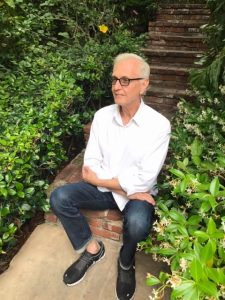 A daughter responds to her father’s unconventional sex life
A daughter responds to her father’s unconventional sex life
My daughter, Alyssa, wrote this week’s column. I am mourning the unexpected death of a close friend, who was a member of my family of choice. In her column, my daughter responds to my recent argument in favor of casual sex which has gotten a lot of attention. I will submit my regular column next week. — Stanley Siegel
By Alyssa Siegel
Like my father, I am a psychotherapist. We both specialize in sex. In our unique personal and professional relationship we agree on many things. However, some of our opinions and practices diverge.
It’s common knowledge that teens tend to rebel against their parents’ wisdom and mandates. So imagine this:
Rather than having a father who towers above you, warning about the risks of sex, instilling fear about it, who rather than judging and guarding your development to determine whether or not you have become sexually active, instead asks if you feel you are ready and have any questions, then hands you some condoms and tells you to have fun.
What would you do?
Well, most people would probably answer that they would do just that. Have fun. Experiment. Maybe even go a little crazy. But not me. Oh, no.
That’s not to say that I didn’t start having sex in my teen years. It’s just that I looked at my free pass, my dance card, with skepticism. Hesitation. If my parents weren’t going to guard my sacred virginity like a lion at the gate, then I guess it was my responsibility to make a decision about what I wanted to do with it.
Still, it wasn’t long before I did, of course, decide to try it out. And as it is for many people, that first time was nothing particularly special, physically or otherwise. It was painful, awkward, uncomfortable. It was not remarkably loving or tender, but I don’t think that I was expectingit would be. It was a growth experience like any other, no more and no less. It was a way in which I learned new things about myself. How both my body and mind responded to engaging in a very different kind of experience. It did not greatly affect my identity nor did it in any way influence my self-esteem. It was not something that I started to use to get others to like me. All in all, I would say, a pretty healthy way to enter into this new world of sexuality.
Over those first few months of sexual activity I gradually shared what I was feeling with my father. Throughout, he remained open and not judgmental, turning questions back to me so that I might search my heart and find my own wisdom to process my experiences. The one thing that I know that my father still regrets was that while he was careful to ask me about whether I felt I was ready to become sexually active, he did not ask whether I believed my chosen partner was as well. And not surprisingly, before long, the boy I was seeing did end our relationship, though not before starting a new one. And, of course, I was devastated. But no more so than any other young, lovelorn girl would be. And this was how I learned that choosing to share yourself sexually with someone is a two-part deal. Knowing yourself, who you really are, what you really want and what your limits are and knowing your partner well enough to know that they have done the same and are up to the task of being har vokse review honest about it.
The thing about sex is that for kids it’s not a matter of if. It’s a matter of when, why, how and with whom. My father’s approach to my sexual curiosity and development was far from being irresponsible. It was informed and empowering. But it was also different then what I knew to be the approach of my friends’ parents.
So here’s how it all turned out. Starting around age 15, I became a serial monogamist. I had sex, I enjoyed sex, but only within the context of a long-term relationship and with someone that I trusted and knew well. I did not have one-night stands or sex with a partner with whom I was not romantically involved. Many years later, immediately following my divorce, my relationships tended to get whittled down from a few years to a few months for a period of time, but the structure was essentially the same.
Now I am in a partnership that I see being a lifelong commitment. And I see it being monogamous.
My father writes often about non-monogamy and about casual sex and the benefits associated with both His most recent post, “In Defense of Casual Sex,” has gone viral.
It’s a great piece. And I really respect and admire his position. But casual sex just doesn’t work for me. I used to wish it would. I have even seen that as a setback and a personal weakness. But inevitably I have returned to the same conclusion. It doesn’t.
Everyone’s psychological make-up is different. It is impossible to precisely conclude why we are who we are and why we choose based on every event and interaction in our histories. The best we can do is make connections and find themes. A theme for my father is that some of his most intimate and meaningful sexual encounters have been brief and with people whom he knew just casually.
I presume that is because his authenticity allows him the freedom to have such sex. For me, I find that I simply cannot open up and feel present enough in my body to experience sexual pleasure with someone whom I don’t feel close to beyond a physical attraction. I don’t know why this is. And I’m not sure that it matters.
Because in both our cases, we are acting in a way that works. A way that is genuine and intentional. Part of the reason that my father’s ideas are so overwhelmingly popular, striking a chord for so many, is because he presents an argument that is counter to the norm. But the norm is typically a place where you don’t find a whole lot of thoughtful insight and intentional choice. So while my sexual personality and preferences are more traditional, more indicative of the historic norm, it doesn’t come from a puritanical place ruled by fear or condemnation. It doesn’t come from a place of conformity, to maintain the status quo and prevent societal chaos. It comes from me. My comfort level. My knowledge of myself, which is based on my own personal experiences.
If I were queen of the world (a common fantasy of mine), I would encourage everyone to follow their own hearts and refrain from condemning others for doing the same. Keep it honest, keep the communication open, and make choices from a place of love and respect and not out of fear. Not only will it result in a happier and more satisfying life, it’s a hell of a lot easier.
Learn more about Alyssa at alyssasiegel.com.
First published on PsychologyToday.com on January 11, 2012.





2 comments
Mari Stachenfeld says:
Nov 12, 2012
I try to be the same way about English grammar. In my heart, I believe the ethical stance is that you can earn my respect without using it. Yet I find that when someone supposedly educated makes a grammar or usage error, my admittedly overtrained eye goes…oh, please don’t do that. And so, Alyssa, I must (yes, I admit it’s compulsive), ask you not to repeat this sentence error, even if it’s within a very sweet blog: “But it was also different then what I knew to be the approach of my friends’ parents.” Why do I ask? Because something is “different FROM,” not different than. And, if you want to go with the loosened usage, to use a sexual metaphor, then please note the difference between ‘then’ (indicating time or consequence) and ‘than” for comparison. Not for a moment does your error imply slovenly thinking, and yet, to me it does.
Cris Gladly says:
Feb 4, 2013
I appreciate this post. And it’s position. I think a huge problem we have in our culture around sex is that need to force ONE way of thinking to be what is best for ALL. If one person has a positive experience with casual sex then EVERYONE should follow that path and/or if one person feels healthy loving monogamy must be in place, then EVERYONE should have to follow that path.
Your point is so true. We all have a different psychological makeup and what we need to is get to know ourselves and see what type of sexual experiences most serve us and our own needs/desires for connection and passion and how that looks.
it’s the presumptuous imposing of OUR best choice on someone else that causes shame and strife around sex.